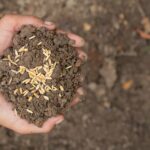FoodTechSafety Jobs
Food Quality Controller – Packaged Foods will be responsible for monitoring and maintaining the quality of raw materials, in-process items, and finished products in a Packaged Foods manufacturing facility. The role involves conducting laboratory tests, implementing quality control systems, and ensuring compliance with food safety and hygiene standards. The candidate will work closely with the production and hygiene teams to ensure every batch of Packaged Foods meets company and regulatory standards for taste, safety, and consistency.
Job Responsibilities
- Conduct routine laboratory tests on Packaged Foods and raw materials, including:
- Salinity
- Acidity
- Moisture content
- pH level
- Total Soluble Solids (TSS)
- Perform microbiological testing to detect spoilage or contamination and ensure compliance with FSSAI regulations.
- Conduct sensory evaluations (appearance, color, aroma, taste, and texture) to maintain product uniformity.
- Analyze preservative levels (e.g., sodium benzoate, potassium sorbate) to confirm they are within legal and company limits.
- Record and interpret analytical data to monitor product trends and take necessary corrective measures.
- Monitor Critical Control Points (CCPs) during all production stages to ensure consistent quality output.
- Work alongside the production team to identify root causes of quality deviations and implement effective corrective and preventive actions (CAPA).
- Ensure laboratory equipment, such as pH meters, salinometers, and moisture analyzers, are properly calibrated and maintained.
- Suggest process improvements to enhance product stability, shelf life, and sensory attributes.
- Maintain detailed records of all inspections, analyses, and test results.
- Prepare and submit daily, weekly, and monthly quality performance reports to management.
- Ensure all quality control forms, test reports, and logs are accurately filled, verified, and stored in compliance with FSSAI and ISO documentation requirements.
- Track non-conformities and maintain a log of corrective actions taken.
- Ensure all operations comply with FSSAI, HACCP, and ISO 22000 food safety standards.
- Conduct Good Manufacturing Practice (GMP) and hygiene audits within the production plant.
- World Food Day Ideas – 10 Unique Topics for Exhibiting World Food DayWorld Food Day Ideas to help you create an exhibition or seminar to celebrate World Food Day. World Food Day is an international event dedicated to raising awareness of hunger and poverty around the world. Each… Read more: World Food Day Ideas – 10 Unique Topics for Exhibiting World Food Day
- Why SDS (Safety Data Sheet) is Important ?Safety Data Sheet is a safe practice tool designed to protect and reduce Hazards. Safety in the workplace is a top priority for every organization. Whether you are dealing with chemicals, equipment, or everyday materials, understanding… Read more: Why SDS (Safety Data Sheet) is Important ?
- Why Does Milk Develop Iron Deficiency in Children?Iron deficiency in children is a pressing concern for parents and caregivers. While milk is a staple in many households, it can sometimes be a culprit in causing iron deficiency in young ones. In this comprehensive… Read more: Why Does Milk Develop Iron Deficiency in Children?
- Who are the International Agencies that approve Religious Food Labels?International Agencies certify or approve food products and labels whether it comply with religious specifications and standards. A Food Safety Inspector or Label specialist inspects food processing from farm to package based on the guidelines from… Read more: Who are the International Agencies that approve Religious Food Labels?
- Which HACCP Training Certification Levels is Best for Your Career?Are you looking to advance your career in food safety? Achieving a HACCP training certification is a great way to do just that. Understanding the different levels in training HACCP certification and the advantages each provides… Read more: Which HACCP Training Certification Levels is Best for Your Career?
- What is the difference between a dietitian and a nutritionist?In the context of food and nutrition, the terms “dietitian” and “nutritionist” are often used interchangeably in Nutrition Science. Thus leading to confusion about the roles and qualifications of these professionals. Therefore dietitians and nutritionists share… Read more: What is the difference between a dietitian and a nutritionist?
- Verify that raw materials, packaging materials, and finished products meet all safety and quality requirements before release.
- Promote a strong culture of food safety, sanitation, and personal hygiene among employees.
- Coordinate with production supervisors to ensure quality parameters are followed throughout all production stages.
- Train line operators and helpers in basic quality checks, GMP, and hygiene protocols.
- Assist in developing standard operating procedures (SOPs) for production and quality processes.
- Support the QA/QC team in internal audits and inspections.
Job Qualifications
- Bachelor’s Degree in Food Science, Microbiology, Chemistry, or any related field.
- Minimum 2 years of experience in quality control or food production, preferably in Packaged Foods or condiment manufacturing.
Technical Skills:
- Proficient in laboratory analysis of food parameters such as pH, acidity, salinity, and moisture content.
- Understanding of microbiological testing methods and safety compliance procedures.
- Working knowledge of FSSAI, HACCP, and GMP standards.
- Familiarity with documentation and traceability systems in food manufacturing.
- Competence in using Microsoft Office (Excel, Word) for data recording and reporting.
Soft Skills:
- Excellent attention to detail and accuracy in reporting.
- Strong communication and teamwork abilities.
- Analytical thinking and problem-solving skills.
- Ability to work in a fast-paced production environment.
- Proficiency in English and local language preferred.


